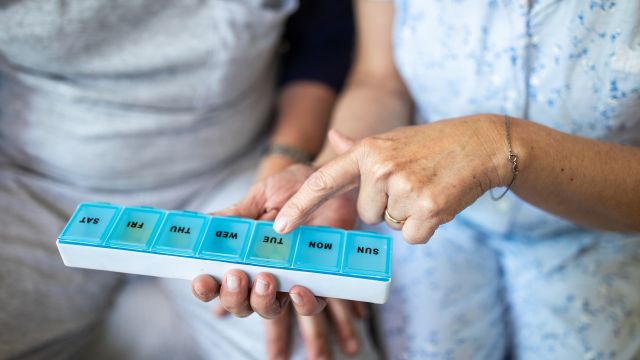Oral medications for cancer are increasingly common. There are a number of treatments for non-small cell lung cancer (NSCLC) that can be taken as pills.
For many people living with NSCLC, oral medications may be more convenient than medications that require an intravenous infusion. However, oral medications involve a greater amount of responsibility by the person with NSCLC and/or their caregivers. As nearly everyone who have ever been prescribed an oral medication knows, it is easy to miss a dose.
To get the most benefit from a cancer treatment, a medication must be taken exactly as directed. There are a number of strategies that can help you or a loved one stay on track with your medication:
- Get clear instructions from your healthcare provider. In order to take a medication properly, you need to know how to take it properly. Know what medication to take, at what times, and if the medication needs to be taken with or without food.
- Set an alarm or reminder on your phone to take the medication at the appropriate time. There are also apps, including apps for some pharmacies, that have mobile reminder functions.
- Have a backup reminder, such as a note left in a visible place.
- Have a designated spot where you keep your medication. It can be helpful to make taking a medication a part of another established routine, such as brushing your teeth.
- Pill boxes, which organize pills into daily doses labeled with the days of the week, may be helpful. If you use a pill box, have a set day and time that you refill the pill box each week.
- If you have an irregular work schedule or will be away from home when you normally take your medication, keep an extra dose or two handy in a bag or purse.
- If you are going to travel, plan ahead for how you will take your medication.
- If you are having trouble sticking to a medication schedule, ask a friend or family member for help.
If you are having trouble adhering to a treatment plan, tell your healthcare provider, and be honest. Some common reasons patients have trouble following a treatment plan include forgetting doses, paying for a prescription, side effects from a medication, or if the dosing regimen is too complex.






